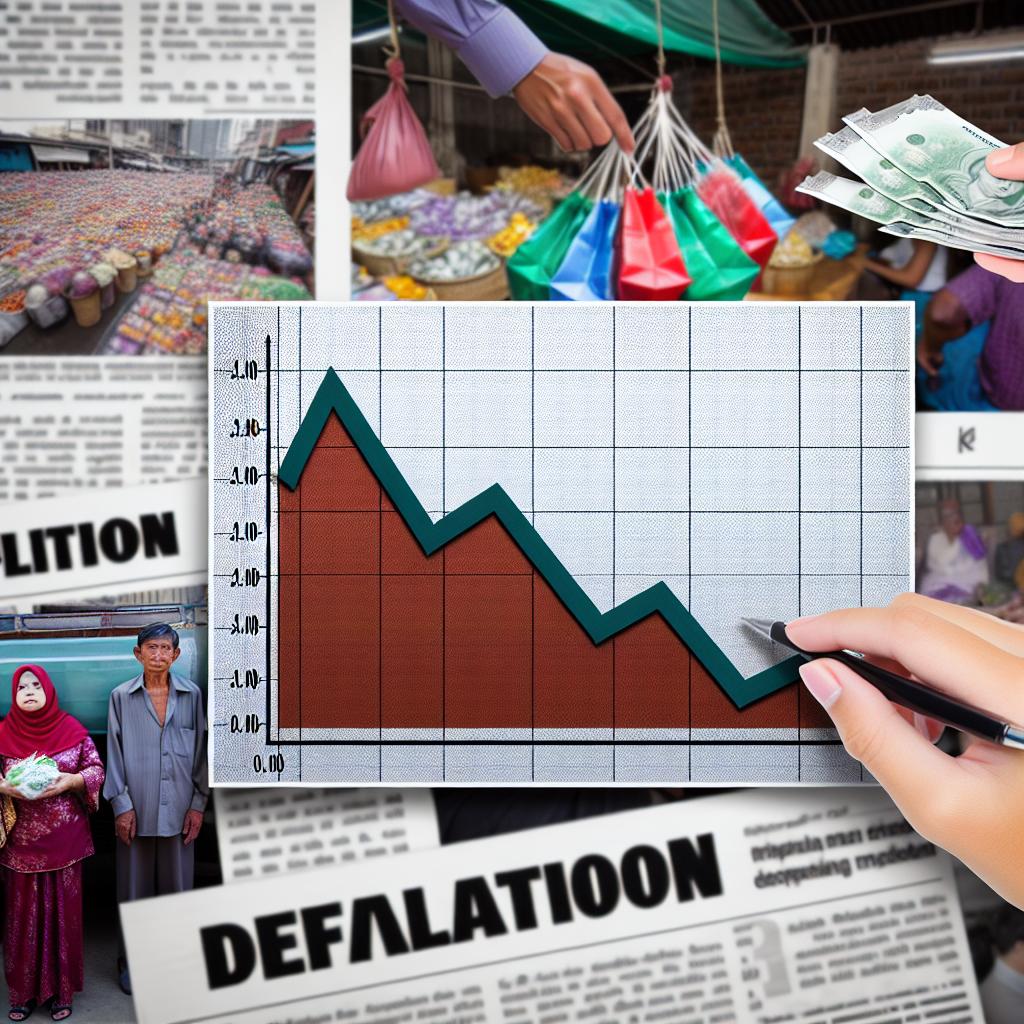The Role of Deflation and Its Impact on Markets
- Written by: admin
- Category: Uncategorized
- Published: May 25, 2025

Understanding Deflation
Deflation is a significant economic condition that denotes a general decline in the prices of goods and services across an economy. It emerges when the inflation rate drops beneath 0%, resulting in an increase in the real value of money. Although deflation might appear beneficial due to the reduction in prices from a consumer standpoint, it can have several detrimental effects on an economy when viewed from a broader perspective.
Causes of Deflation
Deflation arises from various factors, primarily rooted in a decrease in demand for goods and services. Understanding these causes is vital for policymakers trying to mitigate its occurrence and effects. Below are some primary causes:
Decreased Consumer Spending: One of the pivotal causes of deflation is decreased consumer spending. When consumers predict a drop in prices, they might postpone their purchases, leading to a reduction in overall demand. This delay becomes significant because consumer spending is a critical driver of economic activity.
Excessive Supply: Another contributing factor is the excessive supply of goods and services relative to demand. When production outpaces consumption, it results in an oversupply that can push prices downwards as businesses attempt to sell excess inventory.
Monetary Policy: The stance of monetary policy can also influence deflation. High interest rates can make borrowing costly, subsequently leading to reduced spending by consumers and businesses alike. When borrowing costs rise, the ability and inclination to spend diminishes, further contributing to falling demand and prices.
Improved Productivity: Technological advancements, while offering substantial benefits, can sometimes contribute to deflation. Enhanced productivity allows for more efficient manufacturing processes, which can lead to reduced costs and, as a result, falling prices. While this is beneficial in certain contexts, sustained periods of improved productivity without corresponding demand increases can lead to deflationary pressures.
Impact on Markets
Deflation’s impact on financial markets and the wider economy is profound. It creates an environment in which traditional economic activities and transactions may slow or even halt due to several interacting factors.
Effects on Investment
Economic uncertainty is one of the hallmarks of a deflationary period. Investors may become risk-averse, choosing to hold onto cash instead of investing in assets, anticipating a continual decline in prices. This cautious behavior can have a trickle-down effect, as businesses find it difficult to secure necessary funding. The reluctance to invest can stymie business expansion and innovation, key drivers of economic growth.
Influence on Borrowing
Deflation also profoundly affects borrowing. During such periods, the real value of debt escalates over time. Essentially, borrowers need to repay loans with money that has appreciated in value, which can cause financial duress for both individuals and businesses. The burden of this increased debt obligation can lead to an uptick in default rates, prolonging economic recovery.
Consumer Behavior
On a consumer level, deflation leads to a behavioral pattern where purchasing is delayed with anticipation of future price drops. This consumer reticence can be detrimental, sparking a deflationary spiral – a situation where reduced spending lowers business revenues, which might lead to layoffs or cutbacks, subsequently resulting in even lower demand.
Central Banks and Policy Measures
Central banks play a crucial role in attempting to counteract deflation through various monetary policies. One primary tool is the reduction of interest rates, which aims to encourage borrowing and spending. Moreover, central banks might employ quantitative easing strategies, which involve purchasing government securities to increase liquidity in the economy. These efforts seek to stimulate economic activities and prevent further deflationary spirals.
Conclusion
While at first glance, deflation may seem advantageous due to the direct benefit of lower prices for consumers, its long-term effects on investment, consumer behavior, and financial markets can be detrimental. Thus, understanding and addressing the underlying causes of deflation are fundamental for policymakers focused on maintaining economic stability. A nuanced view of deflation requires acknowledging both its immediate effects and potential long-term repercussions, guiding strategies that can effectively balance these dynamics. For those seeking more detailed analyses and insights on economic trends and phenomena, resources from financial industry experts and economic research institutes can provide comprehensive guidance and support.
This article was last updated on: May 25, 2025

